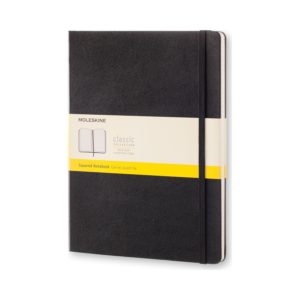Meditation. Yoga. Exercise. All of these are ways in which people try to achieve a state of mind that is calm, focused and productive without the use of prescription medications. If they’re effective, in theory at least, they should lead to greater success at work. And greater overall happiness in life. Now comes word that keeping a daily written journal (or diary) could have the same effect.
This week, in the New York Times, we learned of the results of a New Zealand study that reported that journaling may help wounds heal faster. This is on top of previous reports that keeping a daily written journal can increase mindfulness, memory, and communication skills. Studies indicate that it can lead to better sleep, a stronger immune system, higher self-confidence and a higher IQ.
So why does it work? Social psychologist at UT-Austin James Pennebaker, considered to be the godfather of writing therapy, explains. Labeling emotions and acknowledging traumatic events helps us organize our minds and make sense of traumas. Writing in a journal engages both hemispheres of the brain, allowing the experience to become fully integrated within our minds. As a result, our memory improves. We’ve freed ourselves of the taxing mental work of processing negative experiences. That allows us to sleep better, which in turn has all kinds of positive cascading benefits.
So if you want to give it a try, how should you get started? Here are 5 practical tips from the experts:
1. Try writing a journal entry in stream-of-consciousness style as soon as you wake up in the morning. Think of that as a way preparing yourself to face the day by dumping out all your anxieties.
2. If you’re dealing with a specific traumatic or disturbing experience, focus your writing on that.
3. Commit to writing once a day for 15-30 focused minutes for 5 days, and then do a pulse-check and see how you feel. If you’re writing about a trauma, it’s important to be sure that you’re not making your situation worse by ruminating on it as you write. You can counter this effect by being sure to end your daily entry with a thought or two about solutions, gratitude and hopes for the future.
4. Don’t force yourself to write every day. Even occasional, sporadic journaling reduces stress if your writing is focused on gratitude or on processing a specific emotional situation.
5. If you don’t want to write long-hand, typing on your phone or laptop or even talking into a recording device are equally effective.
Journaling can be way of reducing anxiety and allowing us to move forward – it can also be a way of understanding our own true desires (they’re a lot harder to ignore when you’re putting them out there in a journal).
We’re getting a new Moleskine and giving this one a try. Are you in? The only thing we have to lose is a few minutes a day – and hopefully some of our most burdensome worries and fears. Pick up your pen, people.
And for a weekly dose of career insights and ideas, sign up for our newsletter, Power Up, here.
Join our community
For access to insider ideas and information on the world of luxury, sign up for our Dandelion Chandelier newsletter. And see luxury in a new light.




